Teacher training
The management of the museum has made itself available to carry out refresher courses on the history of the ancient population of our territory for teachers of primary and secondary schools of first degree.
Adult education
In collaboration with the Geo-Archaeological Association every Saturday winter, conferences are open to all on archaeological, historical and current issues, with a prestigious speaker from various Italian universities and educational institutions.
Restorations
Following the imposing amount of archaeological finds found in the archaeological excavation areas of our territory, the museum, with the passing of the years, has equipped itself with a small but well-equipped restoration laboratory. This choice was motivated by the need to make the public participate in the discoveries made and at the same time not to aggravate the work of the restoration facilities of the Ministry of Cultural Heritage. The laboratory carries out the restoration of the ceramic and metal material under the supervision and supervision of the National Museum of Chiusi.
Experimental Archeology (Paid Activities)
In collaboration with the Geoarcheological Association of Chianciano Terme, the museum staff carries out experimental activities mainly aimed at primary and secondary school children:
- Laboratory of Etruscan writing, using, as in the time of the Etruscans, special tablets with wax to be engraved with a "stylus", at the end the child will be able to write short texts (for example his own name and that of his family) using the Etruscan alphabet;
- From the thread to the fabric: wool, cast, frame. Children will see how from the wool, using the spindle, you get to the thread that will then use on a small frame making the fabric;
- Restoration laboratory with search for attachments and gluing and subsequent with graphic documentation of the vase; at the end the boy will have restored and realized a technical drawing of a vase;
- The documentation of the archaeological finds after the excavation: realization of drawing with relative technical cataloging according to the current regulations of the archaeological cataloging.
Treasure hunt
For the school groups who expressly request it, there will be a special guided tour of the museum; the visit is carried out by specialized personnel able to motivate and capture, in a joyful and non-academic way, the attention of the children; during the visit, particular emphasis will be placed on some objects in common use, at the end the children will have to "rediscover" these objects and identify them on a special print on which they will then have to write their name in Etruscan






